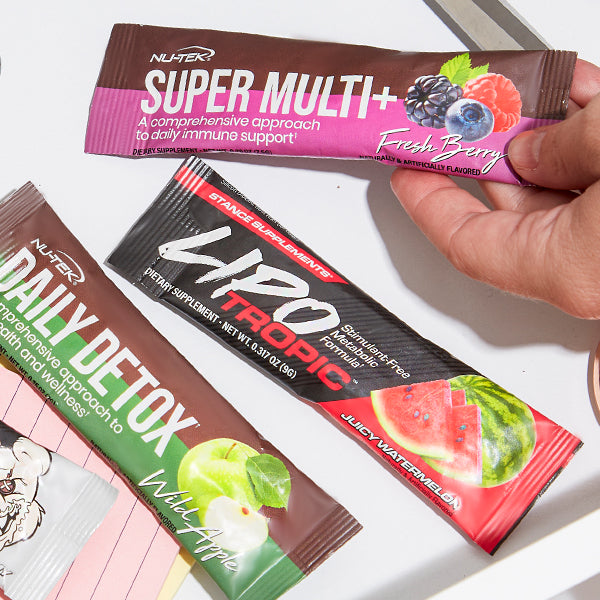Stress resilience isn’t only about mindset or meditation—your diet can help your body cope with life’s pressures. Research shows that specific dietary patterns and nutrients can influence cortisol levels, gut–brain communication, sleep quality, and immune function. Here’s how to use food as a tool for stress management.
Choose a Plant-Forward Eating Pattern
A Mediterranean-style diet—rich in vegetables, fruits, whole grains, legumes, nuts, seeds, and fish—has been shown to help regulate stress hormones. A 2023 study published in Frontiers in Endocrinology found that a polyphenol-rich green Mediterranean diet lowered fasting morning cortisol compared to a standard healthy diet. Another 2020 study in Psychoneuroendocrinology reported that higher fruit, vegetable, and lean protein intake was associated with lower perceived stress in adults.
These diets supply antioxidants and polyphenols that counter oxidative stress, and plenty of fiber that feeds beneficial gut bacteria—important for keeping inflammation and stress-related hormones in check.
Feed the Gut–Brain Axis
The gut and brain communicate through nerve pathways, hormones, and immune signals, so supporting gut health is key. A 2025 review in Trends in Food Science & Technology highlighted how short-chain fatty acids produced by gut bacteria help regulate stress signaling in the brain. Another 2023 trial in Molecular Psychiatry found that people following a “psychobiotic diet” rich in fermented foods and prebiotic fiber reduced perceived stress by 32% in four weeks.
Include prebiotic fibers from oats, lentils, asparagus, and bananas, and fermented foods like yogurt, kefir, kimchi, and sauerkraut to nourish your microbiome and improve stress resilience.
Focus on Key Nutrients
Certain nutrients play a direct role in managing the body’s stress response:
- Omega-3 fatty acids from salmon, sardines, or walnuts help modulate inflammation and support brain health. A 2025 review in Nutrients concluded that regular omega-3 intake supports mood and stress adaptation.
- Magnesium—found in leafy greens, pumpkin seeds, and dark chocolate—has been linked to healthier regulation of the hypothalamic–pituitary–adrenal (HPA) axis, which controls cortisol output.
- Polyphenols from berries, green tea, and cocoa may reduce neural inflammation and support healthy cortisol levels, according to a 2025 review in Food Research International.
- Tryptophan, an amino acid in turkey, eggs, and dairy, supports serotonin and melatonin production, promoting calmer moods and better sleep.
Balance Blood Sugar and Time Your Meals
Large spikes and crashes in blood sugar can trigger stress hormones like cortisol and adrenaline. To help keep levels steady:
- Pair carbohydrates with protein and healthy fats.
- Choose whole grains and high-fiber foods over refined carbs.
- Eat regular meals rather than skipping or dramatically restricting calories.
Consistent blood sugar supports stable energy and a calmer stress response throughout the day.
Support Sleep and Immune Health
Diet also shapes sleep quality and immune defenses—both of which influence how well you handle stress. Magnesium, zinc, B vitamins, and tryptophan-rich proteins help regulate the sleep–wake cycle. Beta-glucans in oats and mushrooms strengthen immune responses, while a diverse diet rich in plant compounds helps keep inflammation low.
Avoid heavy meals and high caffeine intake late in the day, as both can disrupt sleep and raise evening cortisol.
Everyday Eating Ideas
- Breakfast: Steel-cut oats with chia seeds, blueberries, and a spoonful of probiotic yogurt.
- Lunch: Quinoa salad with chickpeas, mixed greens, grilled salmon, and a spoon of kimchi.
- Dinner: Lentil and spinach stew with garlic and turmeric, plus a side of sautéed greens.
- Snack: Apple slices with almond butter or a handful of walnuts.
The Bottom Line
By centering your meals around fiber-rich plants, fermented foods, omega-3s, and key micronutrients while maintaining steady blood sugar, you give your body and brain tools to stay resilient when life gets stressful. Combined with regular exercise, good sleep habits, and mindfulness practices, these dietary strategies can help you handle stress and recover more effectively.






